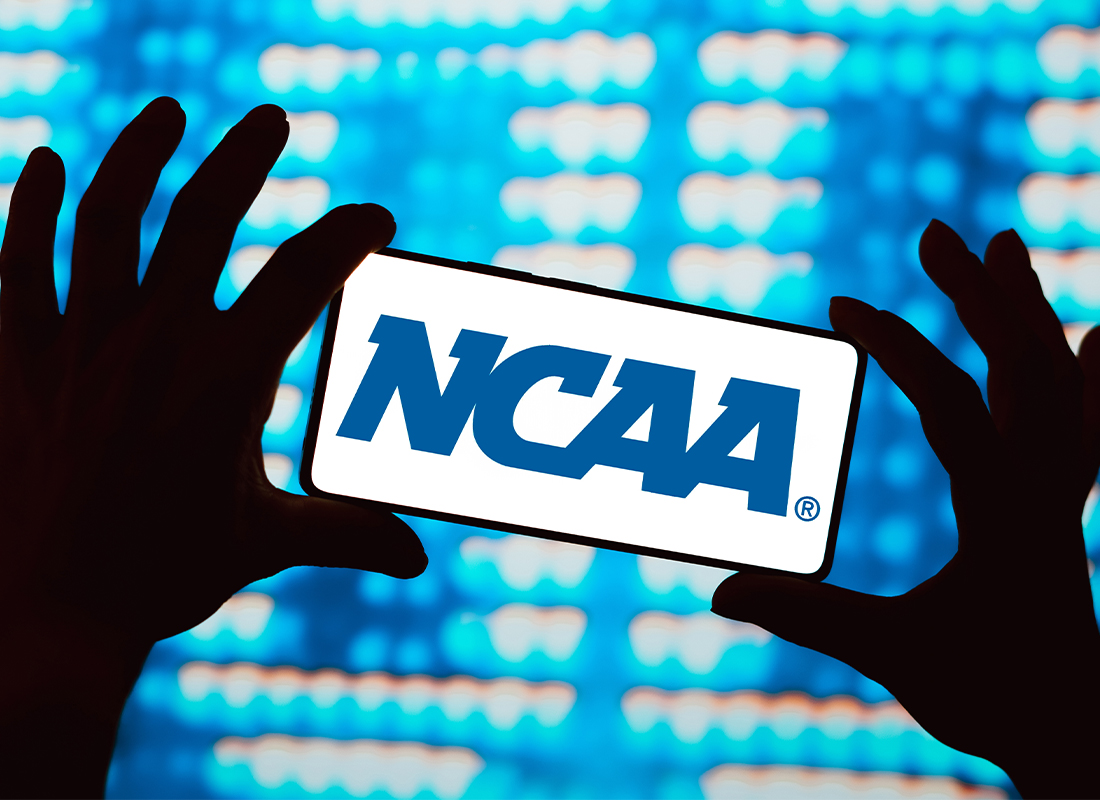Thinking about NFTs? Here are Some Things to Consider
Originally published on August 17, 2021
Updated on December 6th, 2024
Non-fungible tokens (NFTs) have gained a lot of attention in 2021 with high profile auctions of digital NFT artwork. Some of these pieces have sold for millions of dollars. Yet many haven’t considered their impact on universities or tax implications for creators and buyers. Given their increasing popularity, it’s important to know about NFTs and how they affect the collegiate athletics market.
What are NFTs?
NFTs are a type of unique digital asset traded through blockchain technology. It has a unique identifying code, making it a one-of-a-kind piece. Ownership of an NFT is similar to ownership of an original painting versus a print available to anyone. As NFTs apply to sports, you can think of it as a limited-edition baseball card made in the digital age.
A recent Sportico article features a thorough analysis of NFTs in sports by McKinsey. It summarizes sales within the top sports NFT platforms NBA Top Shot, Topps MLB and Sorare, which reflected peak sales in February 2021. Specifically:
- $138 million in sales occurred during the last week of February alone.
- In contrast, $4 million in sales occurred the last week of July. The number of transactions is holding steady, ranging 1- 1.7 million transactions per month, with the average sales price declining.
- May, June and July reflected an average sale price of $35, $30, and $29 per NFT, respectively.
The article’s authors indicate sports NFTs “are a movement, not a meme.”
NFTs in College Sports
Stephen F. Austin University sold the first NFT in college sports in March 2021. The NFT commemorating the LadyJacks’ first appearance in the NCAA Tournament was auctioned at $100. The intent of this transaction wasn’t to raise significant funds for the athletics program, but instead test the waters and see how fans respond.
Wally Crittenden, SFA’s Associate AD for Business Development & Revenue Generation, has become well known for being innovative in ticketing and revenue generation. He also is an entrepreneur outside of the university, leveraging technology such as blockchain to innovate NFT application as ticketing, promotions and fan art.
Wally offered advice to his fellow athletic administrators on Twitter in a thread listing do’s and don’ts of NFTs. The most notable piece of advice: “(Revenue) share should be in the institution’s favor as you have too many assets in-house that are created by talented staff.” He wrapped up his statement, “If I was offered the option of an NFT or a social token adopted within our department walls, which would I take? Without question a social token through our wallet supports both.” (A social token is currency that can be exchanged in the NFT market, whereas an NFT itself is a “non-fungible” unique digital item.)
Fast forward a few months to the dawning of the name, image and likeness (NIL) era. Now, college athletes can also benefit from NFTs. Dreamfield Sports is an NIL marketplace started by rival quarterbacks McKenzie Milton of Florida State and D’Eriq King of Miami. The marketplace includes NFT trading cards auctioned through OpenSea. In the first month of sales, there were nine transactions at an average price of 0.3 ETH (Ethereum-a common cryptocurrency used for trading NFTs through blockchain). On Aug. 14, 1 ETH was valued at $3,259.55 USD. McKenzie Milton’s first edition 25/30 NFT trading card sold at 0.5 ETH on July 10, when 1 ETH was valued at approximately $2,100. This means the buyer of this NFT was willing to pay over $1,000 for this digital trading card.
A recent Business of College Sports Podcast episode on NFTs covered opportunities to capitalize on NFTs through booster auctions, with the sale of never before seen items (e.g., interviews, pictures, footage) that could be of higher value. It was also noted that to maximize NFTs, collegiate athletic departments need to proactively engage with fans and connect them to the teams. This podcast episode includes great tips on implementation of NFTs in college athletics, fan engagement, and rights to intellectual property (likely a hot button issue in the wake of NIL).
Taxability of NFTs
As complex as NFTs are to grasp, the taxability is also complicated. While the IRS has started to increase its focus on cryptocurrency, there is no IRS guidance specific to NFTs. As discussed in a recent article from Accounting Today, there are multiple potential taxable events related to NFTs.
NFT Creator
- The sale of an NFT through an auction site creates ordinary business income, up to 37%. The auction house will issue a 1099-K.
- The sale also triggers self-employment tax at 15.3% in addition to the income tax.
- The IRS considers cryptocurrency as property-so any time it is exchanged, it is taxable. Receipt of cryptocurrency in the sale of an NFT triggers a taxable event. Trading cryptocurrency results in capital gains or losses; therefore, its cost basis will be captured and subsequent exchange will not be taxed at ordinary tax rates.
NFT Buyer
- Use of cryptocurrency to buy an NFT triggers a taxable event. Trading cryptocurrency results in capital gains or losses; therefore, it will not be taxed at ordinary tax rates.
- Subsequent sale of an NFT is also a taxable event. Collectibles held for more than a year and sold at a gain are subject to a long-term capital gains tax of up to 28% (higher than the 0-20% tax rate on most capital gains). Collectibles sold in less than one year are taxed as ordinary income, up to 37%.
- Investments in a collectible could be subject to a 3.8% net investment income tax depending on the amount of investment income and the taxpayer’s modified adjusted gross income.
In the private sector, entities like Dreamfield should take into consideration the taxability of NFTs. However, what if the NFT was created by university staff with university assets and the transaction was initiated by the university?
Absent any unrelated business taxable income (UBTI) guidance in this area, it’s a tough call to make. First, it would need to be determined how tightly the NFT transaction can be tied to the university’s exempt purpose to consider whether it generates UBTI. This determination could be different if it was through a separate 501(c)(3) organization like an athletic association or a research foundation. Such an organization might have an easier time tying the NFT to their exempt purpose.
The IRS generally doesn’t act fast when it comes to developing new tax guidance, especially for tax-exempt organizations. Couple that with the newness of NFTs and there remains a lot of uncertainty. Your best bet is to consult with trusted collegiate athletics CPAs and tax professionals.
All content provided in this article is for informational purposes only. Matters discussed in this article are subject to change. For up-to-date information on this subject please contact a James Moore professional. James Moore will not be held responsible for any claim, loss, damage or inconvenience caused as a result of any information within these pages or any information accessed through this site.
Other Posts You Might Like

